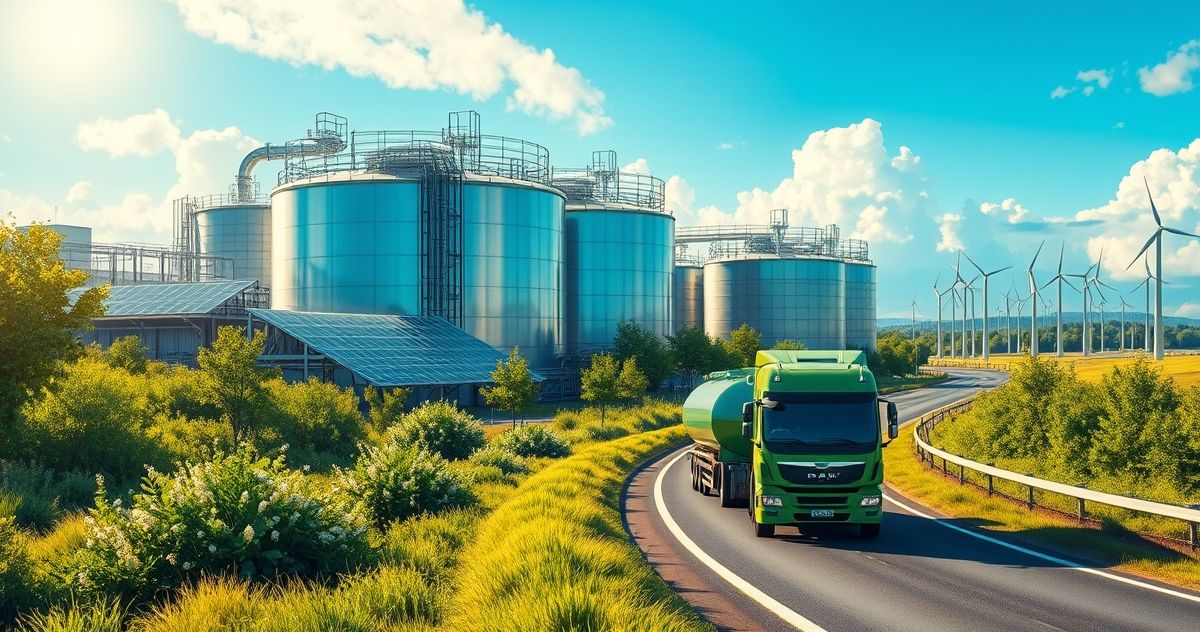Understanding the Renewable Diesel Production Credit
The Renewable Diesel Production Credit is a vital tax incentive developed to promote the production and use of renewable diesel fuel. This credit is part of a broader effort to support sustainable energy practices by alleviating some of the financial burdens associated with producing renewable diesel. Manufacturers and producers who qualify for this credit can gain substantial financial advantages, which in turn fosters greater investment in renewable technologies.
What is the Renewable Diesel Production Credit?
At its core, the Renewable Diesel Production Credit makes renewable diesel more competitive with traditional fossil fuels by minimizing production costs. Offered as part of federal and sometimes state-level tax programs, this credit is designed to encourage manufacturers to invest in renewable diesel fuel production facilities. The credit is calculated based on the quantity of eligible diesel produced, thus scaling with production volume to provide significant financial incentives.
Primary Purpose
The primary aim of the Renewable Diesel Production Credit is to stimulate the production and utilization of renewable diesel as an alternative to petroleum-based diesel. As a cleaner, more sustainable energy source, renewable diesel reduces greenhouse gas emissions and meets regulatory requirements for reducing carbon footprints. The incentive aligns corporate financial goals with environmental sustainability objectives, driving innovation and adoption in the renewable energy sector.
Key Features and Components
- Eligibility: The credit is available to taxpayers who produce renewable diesel fuel that meets specific quality and compositional standards as defined by the Environmental Protection Agency and relevant tax authorities.
- Credit Calculation: The amount of the credit is based on the volume of renewable diesel produced and sold within the eligibility period. Rates are generally determined on a per-gallon basis, incentivizing higher production volumes.
- Transferability: The credit may sometimes be transferable, allowing taxpayers to sell the credit to other entities when applicable regulations permit such transactions. This feature provides flexibility and can enhance liquidity for producers.
- Integration with Other Programs: The renewable diesel tax credit may operate alongside other federal or state renewable fuel incentives, allowing entities to maximize their benefits through strategic planning.
Filing and Compliance Requirements
To benefit from the Renewable Diesel Production Credit, producers must comply with a range of filing and reporting requirements, which may include:
- Certification Requirements: Producers must verify that their renewable diesel meets established energy content and emissions standards. Certification documentation is necessary to substantiate claims.
- Record Keeping: Companies must maintain thorough records of production volumes, sales transactions, and related financial filings to validate their credit claims.
- Tax Filing: The credit must typically be claimed on specific tax forms that require detailed information about the quantity of renewable diesel produced and the period of production. Compliance with IRS and, where applicable, state tax filing procedures is essential.
Penalties and Consequences for Non-Compliance
Failure to comply with the requirements of the Renewable Diesel Production Credit can result in significant financial and operational setbacks. Consequences may include:
- Disqualification from Credits: Non-compliant producers may forfeit claimed credits, resulting in higher tax liabilities.
- Fines and Penalties: Intentional misreporting or failure to maintain proper records can lead to monetary penalties and increased scrutiny from tax authorities.
- Audit Risk: Producers who fail to adhere to compliance standards may be subject to additional audits, which can be resource-intensive and lead to further fines or corrective actions.
Significance in Tax Resolution and Financial Compliance
In the context of tax resolution and overall financial compliance, the Renewable Diesel Production Credit represents a specific opportunity for producers to lower their tax burden while contributing positively to environmental goals. This credit plays a dual role in supporting sustainable practices while providing significant tax incentives that encourage expansion and innovation in the renewable energy sector. Its significance is underscored by the growing regulatory emphasis on reducing carbon emissions and utilizing alternative energy sources.
By correctly navigating the compliance landscape of the Renewable Diesel Production Credit, businesses can not only enhance their profitability but also boost their reputation as environmentally responsible entities. This positioning can lead to broader market access and potential partnerships aligned with green initiatives. As such, a thorough understanding of the mechanics and compliance obligations associated with this credit is crucial for large-scale renewable diesel producers aiming to optimize their financial and sustainability objectives.

